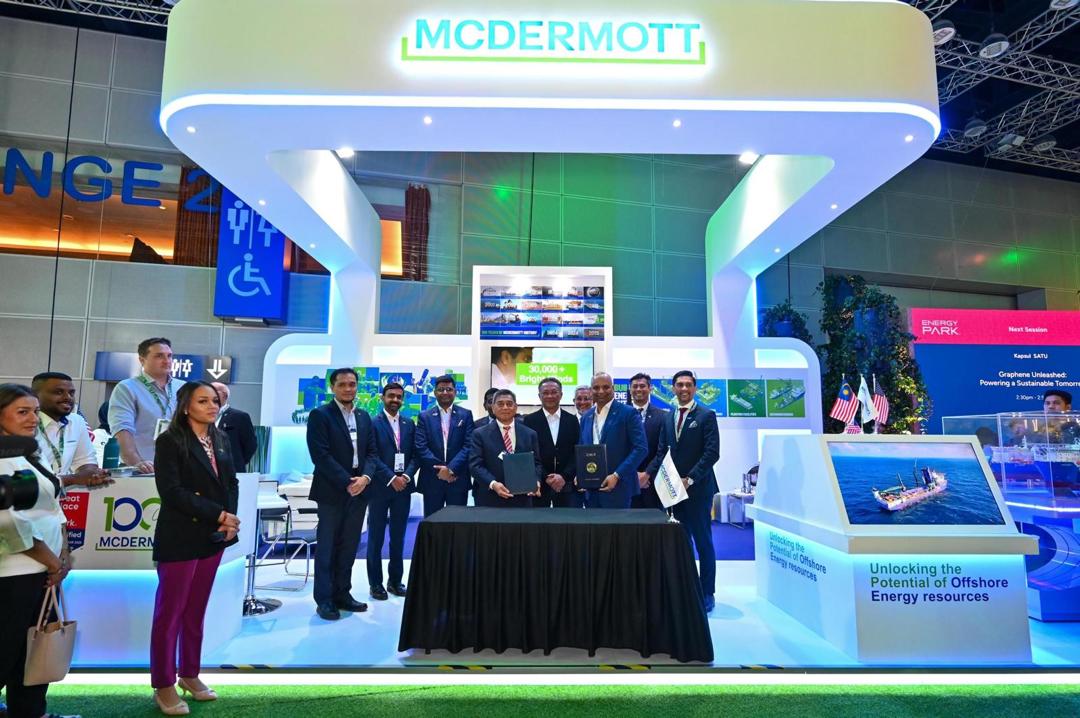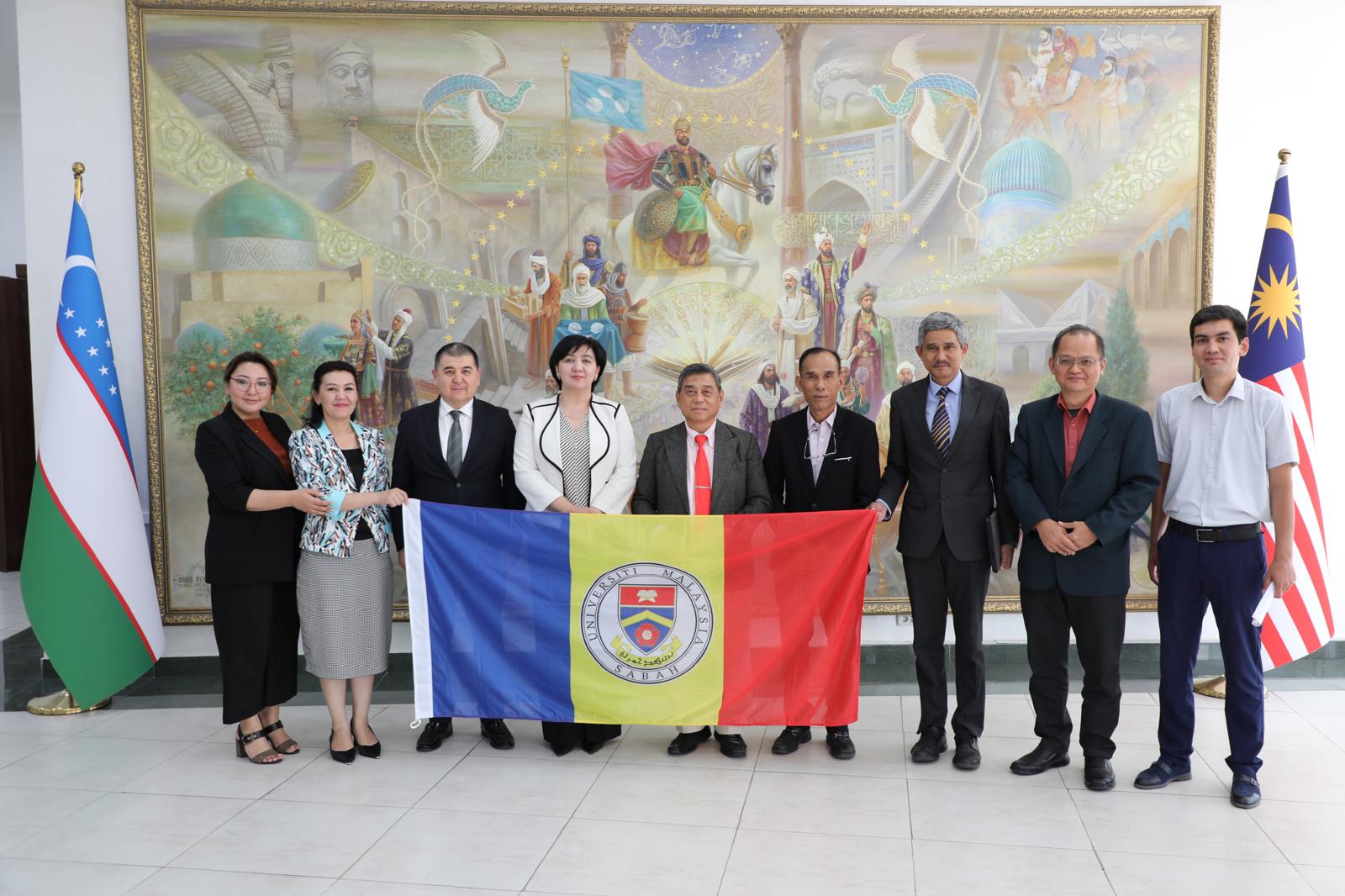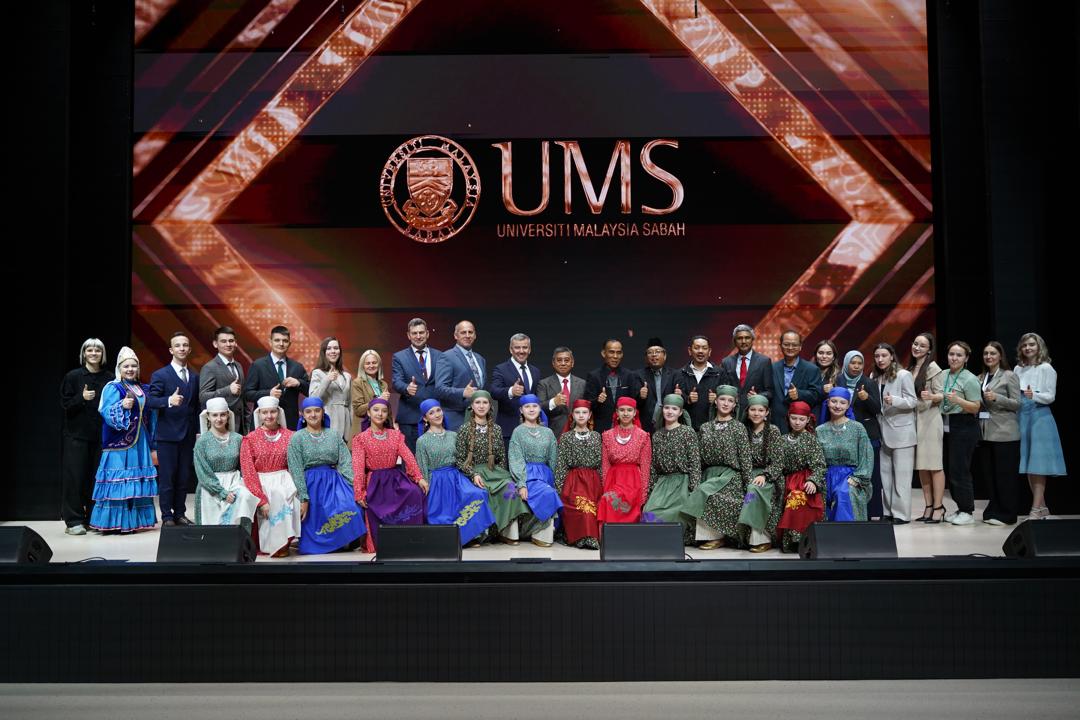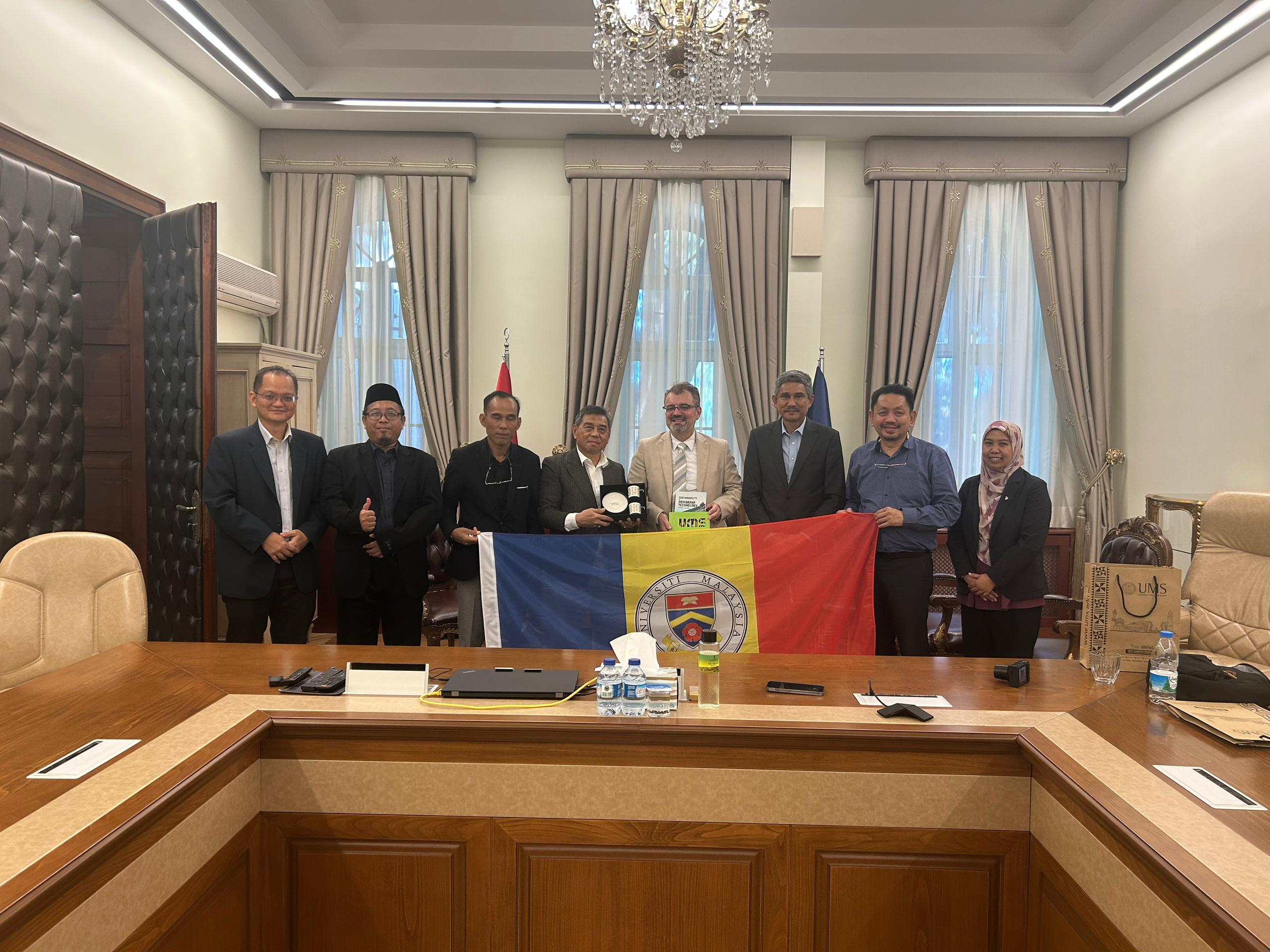 McDermott and Universiti Malaysia Sabah (UMS) jointly announce the signing of a Letter of Intent (LOI) to collaborate on academic and industrial initiatives focused on building local talent and strengthening regional capacity in Sabah, a key energy hub for Malaysia.
McDermott and Universiti Malaysia Sabah (UMS) jointly announce the signing of a Letter of Intent (LOI) to collaborate on academic and industrial initiatives focused on building local talent and strengthening regional capacity in Sabah, a key energy hub for Malaysia.
The LOI outlines a framework for long-term cooperation with four UMS faculties: Computing and Informatics; Engineering; Science and Technology; and Business, Economics and Accountancy.
The collaboration includes industrial placements for students, joint research, educational projects, and co-curricular development to support a more skilled and industry-ready workforce.
It was formalized during the 2025 edition of the Energy Asia Conference and Exhibition, held in Kuala Lumpur recently, and also counts with the support of the Malaysian Investment and Development Authority (MIDA), for the commitment to local content in the country.
According to Chairman of UMS Board of Director, Datuk Seri Panglima Abdul Rahman Dahlan, through the collaboration, UMS and McDermott are aiming to align academic learning with industry requirements, bridging skill gaps and supporting sustainable growth.
“It supports our goal of nurturing high-impact graduates equipped for the energy sector.
“McDermott’s industry leadership and clear focus on regional development make this a meaningful step toward expanding Sabah’s role in the national economy,” he said.
Meanwhile, McDermott’s Senior Vice President, Subsea and Floating Facilities, Mahesh Swaminathan said the partnership reflects McDermott’s continued investment in Malaysia’s future.
“This being done by supporting academic-industry collaboration and strengthening local capabilities, particularly in Sabah.
“It builds on the broader local content and workforce development initiatives already underway across the region and reinforces our commitment to advancing opportunities where they are needed most,” he said.
MIDA’s Deputy Chief Executive Officer, Investment Promotion and Facilitation, Sivasuriyamoorthy Sundara Raja also agreed that the LOI is a strong example of how industry and academia can collaborate to support Malaysia’s vision of becoming a regional hub for high-value talent and innovation.
“McDermott’s focus on capacity building reinforces our national goal of building a competitive and regionally inclusive energy sector,” he said.
The initiative also supports knowledge sharing, corporate social responsibility activities, and research aligned with industrial needs and contributing to Malaysia’s broader push for inclusive growth and innovation-led development.
Also present during the LOI signing ceremony the UMS Vice Chancellor, Prof. Datuk Dr. Kasim Hj. Mansor.



 Universiti Malaysia Sabah (UMS), through its Borneo Marine Research Institute (BMRI), in collaboration with the Ministry of Natural Resources and Environmental Sustainability (NRES), the French Embassy in Malaysia, and eight secondary schools across Sabah, successfully organized a beach clean-up event to promote environmental awareness and sustainable coastal management.
Universiti Malaysia Sabah (UMS), through its Borneo Marine Research Institute (BMRI), in collaboration with the Ministry of Natural Resources and Environmental Sustainability (NRES), the French Embassy in Malaysia, and eight secondary schools across Sabah, successfully organized a beach clean-up event to promote environmental awareness and sustainable coastal management. TASHKENT - Universiti Malaysia Sabah (UMS) is expanding its international partnerships following a successful academic visit to the Tashkent State University of Oriental Studies (TSUOS) in Uzbekistan, led by UMS Vice-Chancellor, Professor Datuk Dr. Kasim Hj. Mansor.
TASHKENT - Universiti Malaysia Sabah (UMS) is expanding its international partnerships following a successful academic visit to the Tashkent State University of Oriental Studies (TSUOS) in Uzbekistan, led by UMS Vice-Chancellor, Professor Datuk Dr. Kasim Hj. Mansor. Universiti Malaysia Sabah (UMS) has proudly elevated Malaysia’s academic diplomacy through the signing of a landmark Memorandum of Understanding (MoU) with Almetyevsk State Technological University (ASTU), one of Russia’s most advanced institutions in petroleum engineering and energy technologies.
Universiti Malaysia Sabah (UMS) has proudly elevated Malaysia’s academic diplomacy through the signing of a landmark Memorandum of Understanding (MoU) with Almetyevsk State Technological University (ASTU), one of Russia’s most advanced institutions in petroleum engineering and energy technologies. In a continued effort to elevate its global standing, Universiti Malaysia Sabah (UMS) has expanded its international academic engagement with a high-level courtesy visit to Yildiz Technical University (YTU) — a premier institution in Türkiye with a proud legacy dating back to 1911 and currently listed among the QS World University Rankings 2025 (851–900).
In a continued effort to elevate its global standing, Universiti Malaysia Sabah (UMS) has expanded its international academic engagement with a high-level courtesy visit to Yildiz Technical University (YTU) — a premier institution in Türkiye with a proud legacy dating back to 1911 and currently listed among the QS World University Rankings 2025 (851–900).